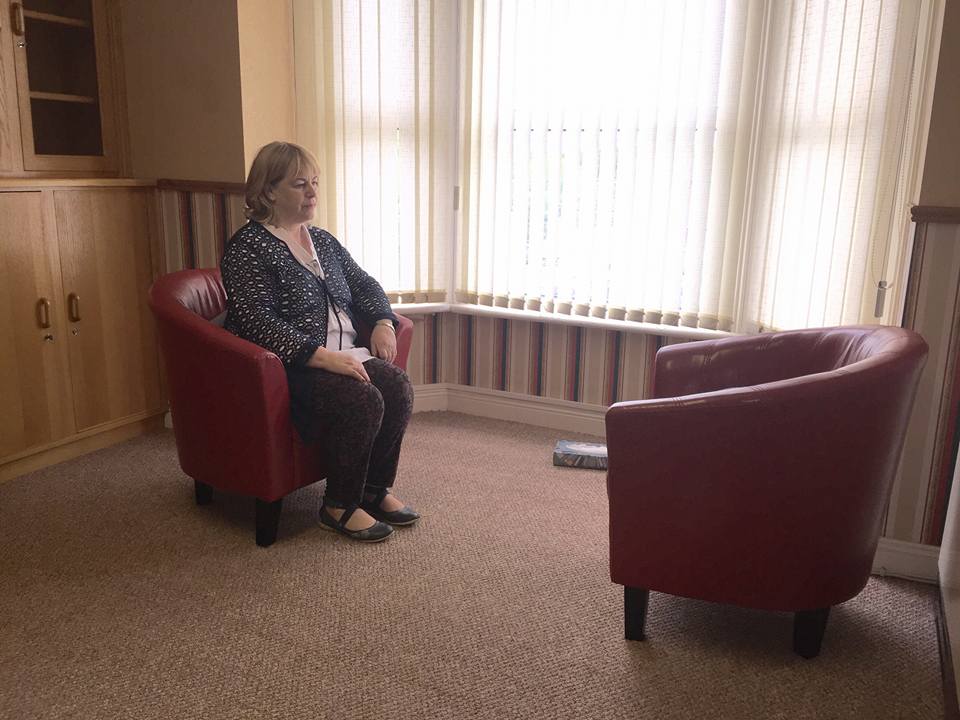The counselling process is different for each individual or couple; however it may be helpful for you to get a sense of counselling and what might occur in the process. The following tools are offerings and not a necessary part of the experience. The counselling process adapts to your needs and you are invited to be a co-creator of the process. Your communication about what you want and need is vital. The principles here apply to both personal and couples counselling, though how the different approaches are used may vary.
The counselling relationship –
The most fundamental aspect of any counselling is the relationship between the counsellor and the client. Study after study has shown that the client’s sense of the quality of the therapeutic relationship is one of the most powerful factors in the client achieving what they want from therapy. The importance of this relationship far outweighs the importance of the counsellor’s qualifications or the style of counselling they employ. This is why it is so vital to find a counsellor who feels right for you. A counsellor using this style and approach will focus on trying to truly understand you and how it is for you to be in your situation. The counsellor seeks to know and work within your view of the world and what is meaningful to you. The therapeutic counselling process is firstly a very human one and is about you, your life, your joy and pain and what gives you a sense of meaning and value. And about how the counsellor can support you to live the life you want.
Talking therapy –
The next layer of working is based on the most simple but powerful principles of therapeutic counselling. This is helping you to explore your own life and what is occurring for you. This often occurs firstly through conversation. The counsellor may offer questions and reflections to help you more deeply understand yourself and your situation. As you speak about what is happening for you, the themes you are dealing with become clearer. This then allows you to focus on the core of the issues you are facing. Expressing yourself, talking can also help you to make sense of what is going on. When we speak in depth about our lives we naturally create a story from the events in our life. It can be important to feel that what is happening to us has meaning and purpose. Through a process of talking we may also uncover belief systems which are not serving you. There can be opportunities to explore other possible frameworks of understanding your world and to find ones which feel both true to you and healthy for you.
Part of the process can also be sharing of your thoughts, feelings and experiences. It can be very powerful to tell another human being what is really occurring for you. Often people tell their counsellors things they don’t feel comfortable telling anyone else. This can be very liberating, and it can be life changing to show your hidden aspects to someone and have them like and respect you within it.
Working with emotion –
You may be invited to deepen your experience of your emotions. Although at times moderation of emotion is called for, most of the time we restrict ourselves from the full experience of our emotions. If during the exploration we come across something which triggers a strong emotion in you, your counsellor may invite you to sit with the emotion, explore it and deepen it. Letting emotions flow which have been stuck is healing, and can also often provide deeper understandings of your own motivations and your responses to what is happening in your life. This emotional exploration always occurs sensitively and at your own pace. You are not required to express more than you want to, although you may be gently encouraged to make a choice to work through those boundaries.
Therapeutic counselling, a holistic approach –
Counselling is often seen as problem-focused, however this is only one side of the story. It can be helpful to not only explore what you don’t want but to make clearer and more conscious what it is that you do want. Becoming clearer about your goals makes it easier to meet them. It can be inspiring to spend some time dwelling on the things which give your life meaning and that you are passionate about. Evoking these ideas and states and breathing them in can help to reorient you to what is truly important to you. We focus on your strengths and personal resources as well as the things which you would like to heal or improve.
Changing state –
It is possible to work directly with your state (which can have physical, mental, emotional and energetic aspects). When clients are in session they are often talking about the past or the future, but what is also important is how they are feeling right then and there in the session. The things they are speaking about and their current state are related. For example as a client speaks about their job, their mind may begin to race; they hunch over and clench their hands. There are many ways to alter state, in fact almost everything does. However, changing state with conscious awareness and choice offers many opportunities for positive change. The first step is becoming aware of the state which is evoked and this in itself can be significant. The client may not have even known that their job created such strong anxiety in them.
We could work with state in this example in a number of ways. This might include deep relaxing breathing, changing posture or having the client shake out their hands. These changes in state can shift the way you relate to the issue in the moment and allow new perspectives and responses to come through.
It is also possible to explore what happens when you exaggerate your natural responses. You can hunch over even more and consciously tighten your hands. This can allow deeper emotions to come through, help you become more aware of how the issue affects you and can also naturally evoke new and healthier responses.
Induction techniques –
Induction techniques are similar to techniques used in hypnosis; they facilitate a change of state. This will usually be moving into a more relaxed and open frame of mind. They can be used similarly to relaxation CD’s, as a way of simply facilitating rest and the alleviation of stress. This can be an end in itself or as a way of creating an atmosphere in the session more conducive to working. Induction techniques can also be used as a preparation for other tools and techniques. The relaxation of the conscious mind and thoughts allows a deeper focus on other aspects and gives greater access to the unconscious mind.
Focusing –
As you speak about your life, different topics or thoughts might evoke responses in your body, emotions and energy. It is possible to work directly with these sensations as they occur in the session. For example whilst talking about a difficult relationship someone may feel heaviness in their shoulders and a feeling of butterflies in their stomach. By placing your attention and awareness on these sensations and exploring them, different outcomes are possible. This process is known as “focusing”, and can be seen as a kind of meditation. Often as you deepen your awareness of the sensations they will change. By following this process energetic shifts can occur. People may feel lighter, more at ease or more powerful once a process is complete. Their relationship to the topic they have been talking about may have changed. Focusing on the sensations can provide new understandings about how you truly feel, going beyond what you think about it. It is a way of bringing your body and your unconscious into the conversation.
The use of imagination –
The faculty of imagination can enter the process in a number of ways. Although we may think of imagination as something inherently “unreal”, using our imaginations can have very real effects and outcomes. For example, it has been shown that people who imagine themselves performing a physical task actually improve at it, as if they have done actual physical practice. Imagination has the power to create real change in your mind and in your life. One way of using imagination is to focus on what it would be like to have a desired outcome, such as to have a new partner or to have stopped smoking. By immersing yourself in this desired reality, the feelings of what that would be like are evoked within the session. Besides simply feeling good, this can help you to remember why it is that you want what you want, and inspire you to orient your life towards it. It may also uncover the deeper motivations for wanting a particular goal. Through this, you may realise that the goal you had in mind isn’t the best way to attain what you really want after all. New life directions may arise.
You might have difficulty communicating with someone and use the imaginative process to “practice” the kinds of inner resources you need to talk to them effectively. These conversations can also be ends in themselves, as they can create internal shifts within you. The same principles can also be applied to facilitate communication between “parts of you”. It is often the case that we feel divided in how we think or feel about something. By using imagination and giving these parts of us a full voice, we gain greater awareness of our deeper needs and the source of our inner conflict. Creative solutions can appear from these processes which help us to feel whole in our decisions and attitudes.
Working with metaphor and symbol –
When you speak you may use a metaphor to describe your experience. For example, “it feels like I’m all alone in the middle of a desert”. You may choose to enter this metaphor and explore it more deeply. The symbols or metaphors are evoked by your relationship to your situation and can also affect it. Entering the metaphor in this example might mean allowing yourself to expand on the feeling that you are all alone in the middle of a desert and create this experience in more imaginative detail. It is possible from here to allow a story to unfold with the metaphor as a starting point. This process can lead to surprising insights and energetic shifts, as the level of symbol and metaphor is a powerful link between the unconscious and conscious minds.
It is also possible to work with significant dreams you have had in this way. Recreating and immersing yourself in the dream can assist you to unravel its deeper layers of meaning and gain new understandings about your situation.
It is what you make it –
This is not an exhaustive description of what can occur in counselling, but hopefully it gives you a taste of what you might expect. Often what occurs in counselling is a responsive and creative combination of the approaches described above, and more. Again, it is important to remember that you are a co-creator of the process. None of this will be done “to you”, but the approaches may be used with your approval and consent, and always aimed towards what it is you hope to experience in your life.
How ICPPD can help
If you have any further questions or would like to enquire about attending a counsellor, please contact – www.newbeginnings.ie or if you are interested in becoming a counsellor/psychotherapist ICCPD offers both Certificate in Holistic Counselling and a Bsc in Holistic Counselling the academic standards to qualify and practice as a Counsellor or a Psychotherapist.
Images source: Google images












